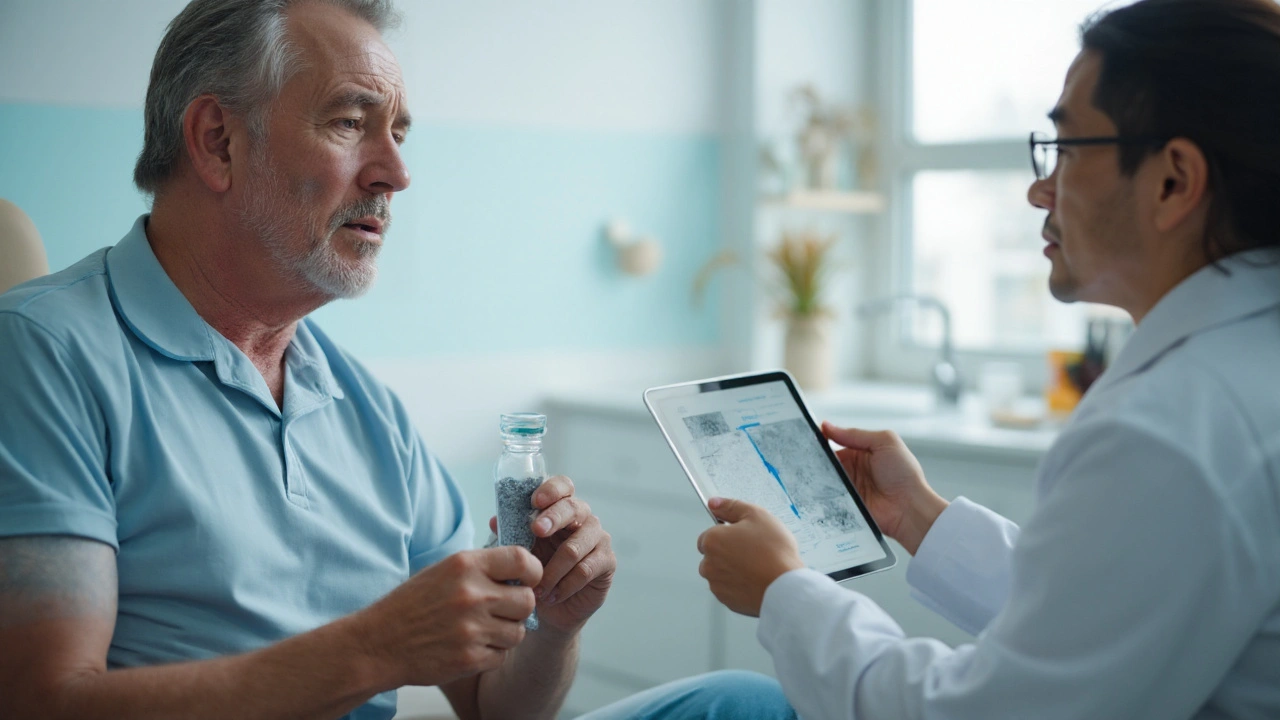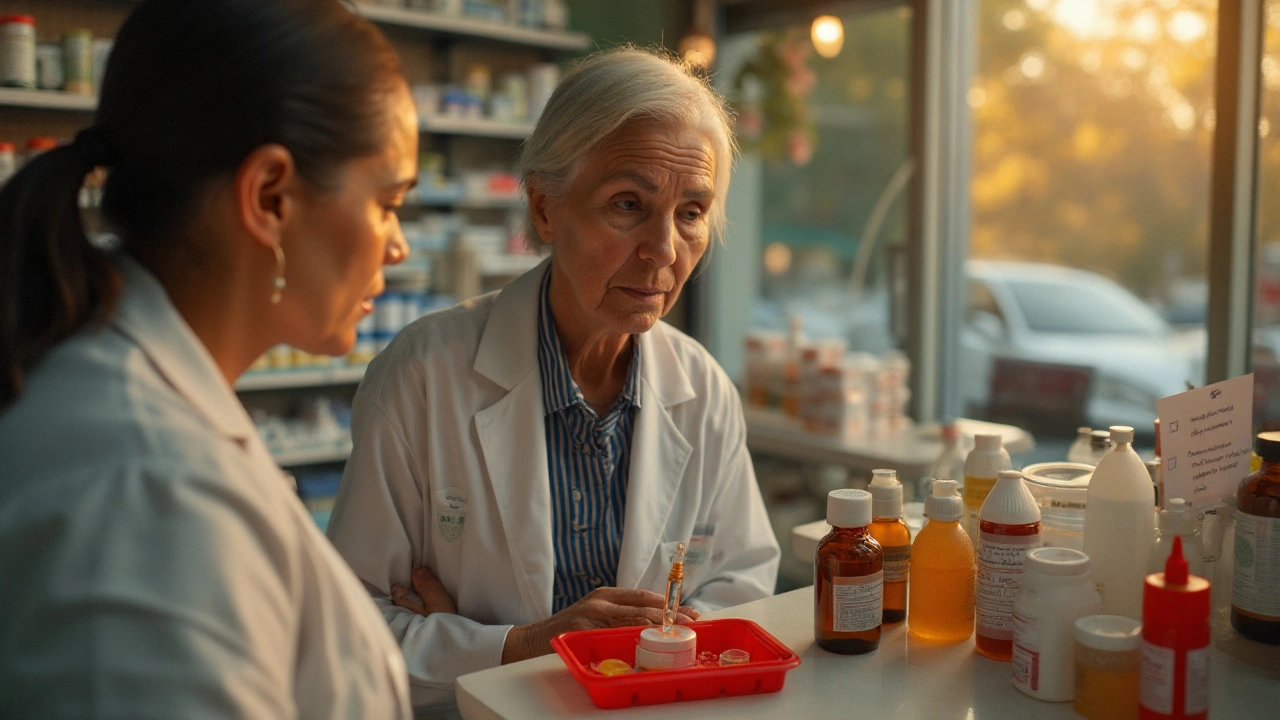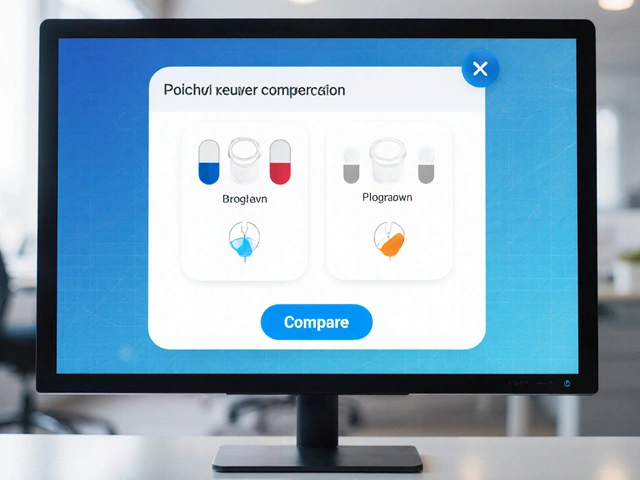You’ve heard the hype: tiny silver particles that supposedly crush germs, supercharge immunity, and clean up stubborn skin issues. Here’s the catch-what people want from colloidal silver isn’t lining up with what the science and regulators say. As of 2025, there’s no solid human evidence that ingesting it prevents or treats infections, but there are very real risks like argyria (blue-gray skin staining), drug interactions, and organ harm. If you clicked hoping for a miracle supplement, I’ll give you the honest, practical version: what it might do, what it actually does, and safer ways to get the results you want.
TL;DR
- Evidence doesn’t support oral colloidal silver for infections or immunity. U.S. FDA (since 1999), NIH/NCCIH, and other authorities say it’s not proven safe or effective for any condition.
- Main risks: argyria (often permanent), kidney/liver issues, neurologic symptoms, and interactions with antibiotics and thyroid meds. Higher and longer exposure raises risk.
- If your goal is antimicrobial action on skin or wounds, talk to a clinician about regulated, medical-grade silver dressings-not DIY liquids.
- For cold/flu, acne, sinus issues, and “immune support,” there are safer, proven options. I’ll map them to your goals below.
- If you still plan to use it, don’t ingest it, avoid nebulizing/sprays, check your meds, and watch for early grayish skin changes-then stop and seek care.
What Colloidal Silver Is-and What the Science Actually Says in 2025
Marketers pitch colloidal silver as a suspension of microscopic silver particles in liquid. Labels may say “colloidal,” “ionic,” or “silver protein,” with various “ppm” levels. The promise is broad-spectrum antimicrobial power with “no side effects.” The reality: small lab studies show silver can harm microbes in a dish, but translating that to safe, effective human use-especially when swallowed-hasn’t panned out.
Regulatory stance is clear and hasn’t changed in your favor:
- FDA has considered colloidal silver products “not safe or effective” for disease since 1999, and continues to take action against unfounded claims.
- NCCIH (NIH) states there’s no high-quality evidence for any health benefit from ingesting colloidal silver and warns of argyria and drug interactions.
- Similar views show up in other regions: official bodies do not endorse oral silver as a treatment or supplement.
Common claims vs. evidence:
- “Boosts immunity”: No controlled human trials show better infection prevention or recovery from oral silver.
- “Kills colds and flu”: Lab activity doesn’t equal clinical benefit in people. No credible human trials show efficacy.
- “Clears skin”: Some silver-containing dressings and creams have roles in clinical care, but these are medical devices or prescriptions, not over-the-counter liquid supplements.
- “Fixes sinus infections”: Sprays and rinses with silver have not proved safe or effective; they can irritate and pose risk if inhaled or used chronically.
- “Detoxes the body”: This phrase has no meaningful clinical standard. Silver can actually accumulate in tissues.
Risks you should actually care about:
- Argyria: Blue-gray skin staining from silver deposits. Often permanent or very slow to fade, and tough to treat.
- Organ toxicity: Case reports describe kidney and liver injury with chronic or high exposure.
- Nervous system effects: Dizziness, seizures, and neuropathy have been reported with excessive use.
- Drug interactions: Can reduce absorption or alter effects of antibiotics (tetracyclines, quinolones), penicillamine, and thyroid hormones.
- Pregnancy/children: Avoid. No proven benefit; disproportionate risk.
What about “ppm” and particle size? Lower ppm isn’t a safety guarantee, and higher ppm isn’t an efficacy guarantee. Particle chemistry (ionic vs. metallic), shape, and contamination matter. None of this fixes the core issue: there’s no validated therapeutic window for ingesting it, and harm has shown up in real people.
Where silver can be appropriate: health professionals sometimes use regulated, medical-grade silver dressings for burns or complex wounds. That’s a specific, supervised use-not a general-purpose supplement.
| Goal/Condition | Evidence for Oral Colloidal Silver | Regulatory/Clinical View (2025) | Safer, Evidence-Based Alternatives |
|---|---|---|---|
| Prevent colds/flu | No reliable human trials showing benefit | Not approved; not recommended | Vaccination, hand hygiene, sleep, vitamin D if deficient, early zinc lozenges for cold |
| Acne/skin infections | No proven benefit from ingestion | Topical medical products may contain silver under supervision | Benzoyl peroxide, topical antibiotics when indicated, good skincare routine |
| Sinusitis | No proven benefit; potential irritation | Not recommended | Saline rinses, intranasal steroids for allergies, clinician-guided antibiotics if bacterial |
| Wound care | Oral use not helpful | Medical-grade silver dressings may be used by clinicians | See wound-care specialist; follow sterile dressing protocols |
| “Detox” | No clinical basis | Not recognized | Address specific toxins with clinician; don’t self-experiment |
Bottom line on claims: broad antimicrobial activity in a petri dish doesn’t mean safe, useful outcomes in your body. Your immune system isn’t a sink you can sanitize with metal particles.

How to Decide: A Practical, Safe-Use Framework
Let’s turn this into action. You likely clicked because you want one of four things: fewer infections, clearer skin, faster wound recovery, or a general “health edge.” Here’s a clean decision path that protects your health and your wallet.
Decision tree
- What’s the job? Identify the real outcome you want (e.g., “fewer winter colds” vs. “kill all germs”).
- Check evidence. If there are no good human trials and there are clear risks, default to safer alternatives.
- Consider regulated options. For wounds and burns, ask about medical-grade silver dressings instead of DIY products.
- Watch for interactions. If you take antibiotics, thyroid meds, or penicillamine, steer clear.
- Risk tolerance. Cosmetic skin staining can be permanent. If that thought makes you pause, that’s your answer.
Safety checklist if you’re still tempted (harm-reduction, not an endorsement):
- Avoid ingesting it. Don’t nebulize it. Don’t use nasal sprays.
- Don’t give it to kids, don’t use in pregnancy, and avoid if you have kidney or liver disease.
- Check all meds and supplements for interactions; talk to a clinician.
- Do not DIY with home “generators.” Quality and dosing are unreliable.
- If considering topical use for skin, patch-test a tiny area for 24-48 hours and watch for irritation or discoloration.
- Stop immediately if you notice any grayish skin tone, mouth discoloration, stomach upset, headache, or neurologic symptoms, and seek care.
Quality red flags on labels
- Vague language like “energized,” “structured,” or “quantum.”
- No contact info or missing lot numbers, batch testing, or clear ingredient lists.
- Therapeutic claims (“treats Lyme,” “kills viruses”)-that’s a legal problem and a trust problem.
When to involve a clinician
- Chronic or recurrent infections-this needs real diagnostics (allergies, asthma, immune issues, sleep, stress, nutrition).
- Nonhealing wounds or burns-ask about evidence-based wound care, not home silver liquors.
- Thyroid disease or antibiotic use-avoid silver and discuss safer options.
Heuristics you can remember
- If a supplement claims to kill pathogens broadly inside the body, ask for human trials-not petri dishes.
- If the risk is permanent (argyria) and the benefit is unproven, pass.
- Don’t treat “immune support” like an ingredient; treat it like a behavior stack (sleep, vaccinations, hygiene, nutrition).

Better Ways to Get the Outcomes People Want (With a Mini‑FAQ)
You don’t want silver. You want results. Here are safer, practical ways to hit those targets.
Fewer colds and faster bounce‑backs
- Get current on flu and COVID shots. These cut risk and severity in ways silver never proved.
- Sleep 7-9 hours. Short sleep wrecks immune function faster than any supplement can fix.
- Vitamin D if deficient. Ask for a blood test first-don’t megadose blind.
- Zinc lozenges at the first sign of a cold (elemental zinc within typical OTC ranges) can trim duration if started early.
- Hand hygiene: soap and water beat most gimmicks. Alcohol gel when you’re out.
Clearer skin
- For acne: benzoyl peroxide or topical retinoids; add topical antibiotics only when indicated. Keep it simple: gentle cleanse, noncomedogenic moisturizer, sunscreen.
- For impetigo or small skin infections: see a clinician; short, targeted treatment works better than guesswork.
- Resistant cases: a dermatologist can layer in prescription options or brief procedural treatments.
Sinus and respiratory comfort
- Daily isotonic saline rinses can help with congestion and reduce flare‑ups.
- For allergic rhinitis, intranasal steroid sprays are safe and effective for long‑term control.
- If you have fever, severe pain, or symptoms beyond 10 days, check in-bacterial sinusitis is less common than people think.
Wound care
- Clean with saline, keep moist (not wet), and cover. That simple routine outperforms a lot of home brews.
- If wounds aren’t healing or you see redness spreading, pain, or pus, get medical care quickly.
- Ask about medical-grade silver dressings when appropriate; don’t substitute consumer silver liquids.
Gut and “detox” myths
- If you’re chasing “detox,” define the toxin. Real detox is clinical and targeted. General silver tonics won’t help and can add a metal burden.
- For gut health, start with fiber (vegetables, legumes, oats) and, if needed, a well-studied probiotic strain for your goal.
Budget tip: If a product claims to fix dozens of unrelated problems, your best savings move is not buying it.
Mini‑FAQ
Is colloidal silver legal to sell?
Dietary supplements with silver can be sold in some places, but sellers cannot legally claim they treat diseases. Regulators have issued warnings and taken action over false claims.
Can topical silver be safe?
Medical-grade silver dressings have defined uses and are overseen by clinicians. Random topical liquids from the internet aren’t the same thing.
Is argyria reversible?
It’s often permanent or very slow to fade. Laser treatments sometimes help, but prevention is the real win.
Does silver harm good bacteria?
Silver is nonselective-lab data suggest it can disrupt beneficial microbes. We don’t have clean “pro:con” ratios in the human body that justify swallowing it.
What about “nano” silver? Smaller is better, right?
Smaller particles can penetrate tissues more easily. That doesn’t make them safer. It can increase risk.
Can pets use colloidal silver?
Don’t give it without a veterinarian’s guidance. The evidence gap and risks apply to animals, too.
What do credible sources say?
FDA, NIH/NCCIH, and similar authorities do not support oral colloidal silver for any condition and document risks, including argyria and drug interactions.
Next steps and troubleshooting
If you wanted an immune “edge” for fall/winter
- Book your flu and COVID shots if due.
- Set a sleep schedule: same bedtime, a dark room, no screens before bed.
- Ask your clinician about checking vitamin D if you’ve had low levels or minimal sun.
- Stock zinc lozenges for day‑one cold symptoms.
- Wash hands on autopilot-build it into your routines (entering the house, after transit).
If your skin is the main issue
- Start a simple acne routine: gentle cleanser AM/PM, benzoyl peroxide spot or wash, retinoid at night, moisturizer and sunscreen.
- Give it 8-12 weeks. If not improving, see dermatology for next steps.
- Avoid harsh DIY antiseptics and unregulated silver liquids.
If you have a stubborn wound
- Stop experimenting. Book a wound‑care visit.
- Ask about modern dressings (including, when appropriate, clinician‑directed silver dressings).
- Manage sugar if you have diabetes-it’s crucial for healing.
If you’ve already used colloidal silver and are worried
- Stop the product.
- List your meds and supplements.
- See a clinician; discuss any skin changes, digestive issues, or neurological symptoms.
- Ask whether baseline labs are warranted (kidney, liver) based on your exposure history.
You came for secret benefits; you’re leaving with a safer plan. If someone in your circle swears silver changed their life, don’t fight them-ask what exact outcome they wanted and show them a safer, proven path to that same outcome. That’s how you win the real game: less risk, better results, fewer regrets.






Elizabeth Grant
August 31, 2025 AT 18:49Okay but real talk - I used colloidal silver for like 3 months because my cousin swore it cured her sinus infections. Turned out she just got lucky with timing. I started getting this weird grayish tint under my nails and panicked. Went to the doc, they were like, ‘Yep, that’s argyria. Stop it.’ No joke, my nails are still kinda off-color two years later. Don’t be me. Just get your vitamin D checked and wash your hands. Life’s too short for silver skin.
angie leblanc
August 31, 2025 AT 21:39they dont want you to know this but silver is the only thing that works and the fda is in bed with big pharma theyve been covering up the truth since the 50s i know a guy who used it and his cancer went away and now he runs a 100 mile race every year they call it argyria but its just a sign you’re too pure for this world the government fears people who heal themselves
LaMaya Edmonds
September 2, 2025 AT 02:12Let’s be real - if you’re swallowing liquid metal because you saw a TikTok influencer with a $200 ‘quantum silver’ bottle and a glowing aura, you’re not ‘optimizing your health,’ you’re optimizing your gullibility. The FDA’s been saying ‘stop’ since 1999. The NIH says ‘nope.’ Your dermatologist won’t prescribe it. Your pharmacist won’t sell it as medicine. And yet here we are, in 2025, still arguing about whether a metal suspension is a cure-all. If you want immune support, sleep more. Eat veggies. Stop scrolling. The only thing colloidal silver is good for is funding your next Amazon Prime delivery of snake oil.
See Lo
September 2, 2025 AT 09:46While the data presented is statistically robust and aligns with peer-reviewed literature from the FDA and NCCIH, it is worth noting that the suppression of alternative therapies is a well-documented pattern in institutional medicine. The pharmaceutical-industrial complex has a vested interest in maintaining the status quo - colloidal silver, being non-patentable and low-cost, threatens multi-billion-dollar revenue streams. The argyria risk, while real, is dose-dependent and occurs in <1% of users with >1 year of use. Meanwhile, the documented antimicrobial efficacy in vitro is >99.9% against 650+ pathogens. The real question isn’t ‘is it safe?’ - it’s ‘why are we being denied access?’ 🤔
Chris Long
September 3, 2025 AT 23:51You people are sheep. The government doesn't want you to be healthy. They want you dependent. Silver has been used for centuries - by the Romans, by monks, by your grandma’s medicine chest. Now you’re told it’s dangerous because the FDA says so? Who elected them? Who gave them the right to decide what you can put in your body? You’re scared of a little blue skin? At least you’ll look like a real man - not some weak, vaccine-dependent, pharmaceutical slave. Real freedom means taking risks. And if you’re too scared to swallow a little silver, you’re not ready for adulthood.